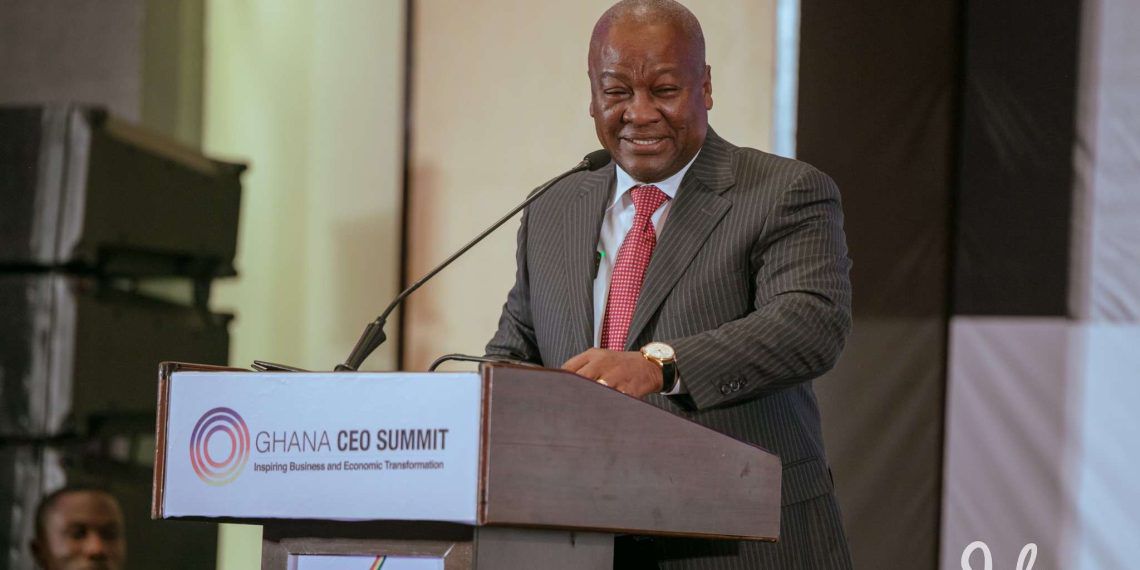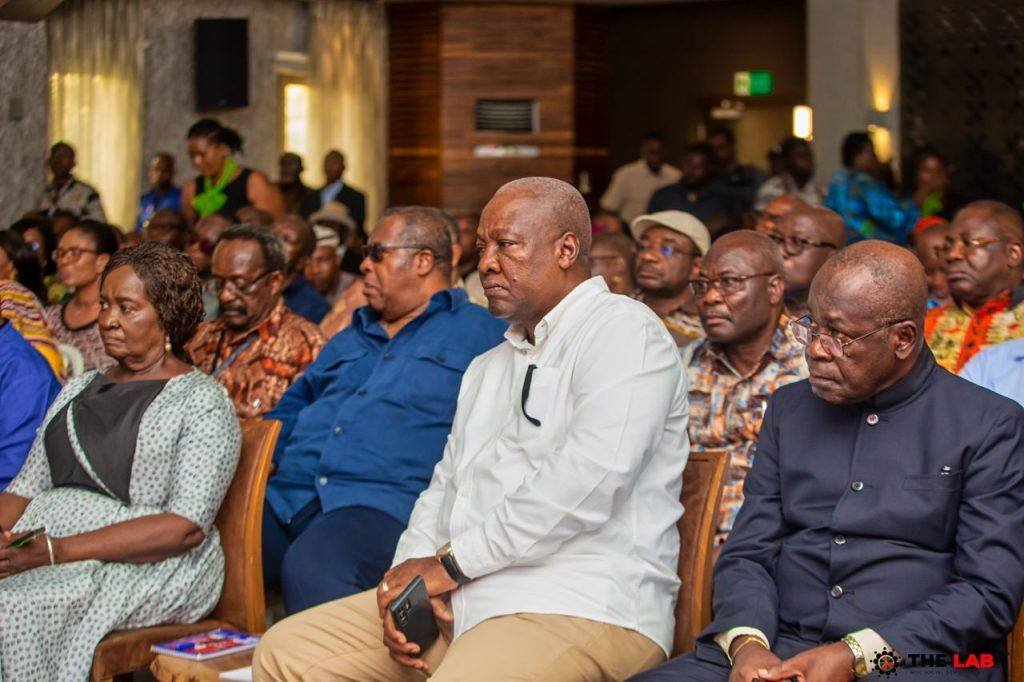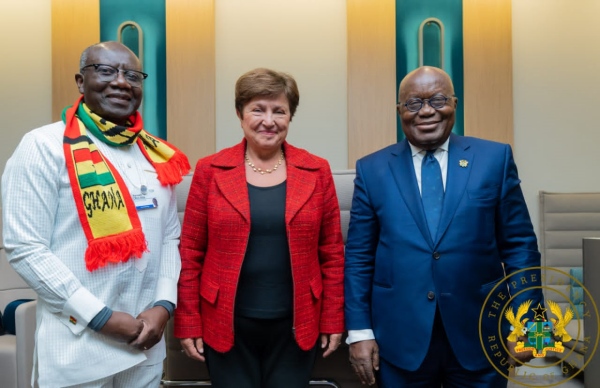
President John Dramani Mahama has unveiled a comprehensive eight-point plan aimed at transforming Ghana’s economy.
Speaking at the 9th edition of the Ghana CEO Summit in Accra on Monday, 26 May, President Mahama emphasised the need for robust policy implementation and responsible spending to build a resilient economy.
The eight-pillar plan includes completing the ongoing International Monetary Fund (IMF) programme, reopening domestic and international capital markets, and strengthening Metropolitan, Municipal and District Assemblies (MMDAs), among others.
Below are the full details of President Mahama's eight-pillar economic reset strategy:
ALSO READ: New BoG governor discloses 6 priority areas of reform to revive Ghana’s economy
1. Completing the IMF Programme with Discipline
President Mahama reiterated his administration’s commitment to completing the ongoing IMF programme with fiscal discipline. This, he explained, will streamline government expenditure and borrowing under the Extended Credit Facility.
He noted that the fourth review of the IMF programme is expected to be concluded in June 2025, with the aim of successfully exiting by 2026.
Following this, the government will participate in Article IV consultations and adopt the Policy Support Instrument (PSI) framework.
This will signal Ghana’s return to responsible and non-borrowing engagement with the Fund.
2. Reopening Domestic and International Capital Markets
The President stated that his administration is working with the IMF, development partners, the Ghana Stock Exchange, and local banks to reopen Ghana’s bond market.
He added that future borrowing would be strictly tied to self-financing and commercially viable projects.
These projects will be implemented by Ministries, Departments and Agencies (MDAs), MMDAs, and State-Owned Enterprises (SOEs) to ensure value for money and sustainable repayment.
3. Strengthening Sovereign Funds and Local Government Financing
President Mahama announced plans to amend the Public Financial Management Act and the Constitution to make contributions to the Sinking and Stabilisation Funds mandatory rather than optional.
He further explained that his administration intends to empower MMDAs to issue infrastructure and municipal bonds.
These bonds will be secured against a portion of their District Assemblies’ Common Fund and used to fund infrastructure projects such as roads, schools, water systems, and local industries.
4. Clearing Verified Arrears and Rationalising Public Investment
The Auditor-General is completing an audit of government arrears and commitments. The final report is expected by the end of May.
President Mahama said that, based on this report, his government would begin clearing all legitimate arrears in a transparent manner.
It will also enforce commitment controls using the Ghana Integrated Financial Management Information System (GIFMIS) and accounting systems based on the International Public Sector Accounting Standards (IPSAS).
New projects will be prioritised according to national needs, funding availability, and alignment with Ghana’s development goals.
5. Accelerating Public Financial Management Reforms
The President confirmed that his government has amended the Public Financial Management Act to include clauses that ensure fiscal responsibility.
He also announced the reactivation of previously stalled reforms. These include the Treasury Single Account (TSA), the Integrated Tax Administration System, and real-time budget monitoring tools.
These reforms are intended to improve efficiency, reduce waste, and combat corruption.
6. Revitalising Exports Through the Ghana EXIM Bank
The Ghana EXIM Bank will be restructured to support non-traditional exports, agro-processing, light manufacturing, and small and medium-sized enterprises (SMEs).
This will boost foreign exchange earnings and create jobs in the real economy.
Under the Agriculture for Economic Transformation agenda, the government will make significant investments in oil palm, cocoa, cashew, shea, and other high-value tree crops.
Additionally, reserves and financial buffers will be built to increase resilience against future global shocks.
7. Positioning Ghana as a Regional Hub for Trade and Investment
President Mahama said that his government envisions Ghana becoming West Africa’s commercial, transport, and digital services hub.
Priority will be given to research and investment in port expansion, financial services, health, education, and industrial corridors.
These efforts aim to connect Ghanaian businesses to opportunities within the African Continental Free Trade Area (AfCFTA) and other global markets.
ALSO READ: Distinction or disappointment? Pres. Mahama’s 120-day social contract in perspective
8. Resuming Infrastructure Development to Stimulate Growth
The President confirmed that his government will resume key infrastructure projects in the roads, energy, water, housing, and urban renewal sectors.
These initiatives will not rely on excessive borrowing but will be financed through innovative systems such as the Big Push initiative, public-private partnerships (PPPs), and strategic collaborations.
In conclusion, President Mahama emphasised that this economic reset is designed to restore macroeconomic stability.
It also aims to create a more conducive environment for local businesses and international investors to thrive in Ghana.
Read Full Story











Facebook
Twitter
Pinterest
Instagram
Google+
YouTube
LinkedIn
RSS